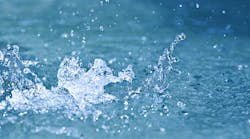WASHINGTON, DC, July 9, 2009 -- Today, the Committee on Science and Technology's Subcommittee on Energy and Environment held a hearing on the intersection between water and energy. Water is needed to generate energy and produce fuel, and energy is needed to pump, treat, and distribute water. The need for energy is growing at the same time that water supply shortages are predicted. Research, development and demonstration are necessary to ensure the nation is able to meet its needs for both resources.
"Too often these two essential resources are thought of independently," said Subcommittee Chairman Brian Baird (D-WA). "However, the strong linkage between water and energy requires that we make a more concerted effort to ensure that water and energy technologies are being developed synergistically."
Witnesses and Members discussed the difficulties in meeting dual goals of lower water usage and lower carbon emissions with existing technologies. For example, while nuclear power plants do not generate greenhouse gases in the production of electricity, they consume approximately 40% more water than an equivalent pulverized coal plant. Biofuels can also be very water intensive if irrigation is necessary for sufficient yields.
Research is being done by industry and the federal government to find ways to reduce water use in generating electricity. New technologies could increase the number of, and the efficiency of, thermoelectric power plants that cool with air instead of, or in combination with, water. Improvements already have significantly decreased the amount of water necessary to produce corn-based ethanol. Woody biomass, algae, agriculture residues or other organic waste streams used as feedstocks for energy-production biomass have a much smaller demand for water.
Witnesses and Members discussed the role of the federal government and industry in developing technologies designed to address the link between the nation's energy and water resources and how deployment of such technologies could help to avoid resource supply disruptions.
Water availability represents another growing concern for meeting future power demands. As population grows, especially in drought-prone areas, demand for water continues to rise while supplies are dwindling. In water-stressed areas of the United States, power plants will increasingly compete with other sectors of the economy and end users for water resources.
"Climate variability and increasing demand affect both our water and energy resources, and it is critical that we acknowledge that interdependency and develop technologies and adopt practices that allow us to manage these resources most effectively," said Baird.
Water and energy-related regulatory policy may add to the challenge of operating existing power plants and permitting new thermoelectric power plants. As water-use decisions become more difficult, there may be a role for the federal government to manage a comprehensive research, development and demonstration strategy to help ensure the nation is well-equipped to prevent energy and water supply disruption.
>> More information on the Committee's work on water issues
###


